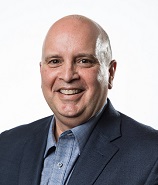Are Allogeneic MSCs Ready For Primetime?
By Bruce Bunnell, Ph.D., Director, Center for Stem Cell Research and Regenerative Medicine; Aron Family Professor of Gene Therapy; Professor, Department of Pharmacology Tulane University School of Medicine and Omair Mohiuddin, Ph.D. student, Biomedical Scientist Program and Department of Pharmacology, Tulane University School of Medicine
 Mesenchymal stem cells (MSCs) are multipotent adult stem cells that are capable of self-renewal and differentiation into cells of mesodermal lineage (bone, fat, cartilage, etc.) [1]. MSCs have been isolated from numerous tissue sources, including bone marrow, adipose tissue, umbilical cord, placenta and dental pulp [2]. MSCs are characterized by the presence of cell surface markers CD73, CD90, and CD105 and the absence of CD14, CD11b, CD19, CD34, and CD45 [3]. Since their discovery in the 1970s MSCs have been extensively studied for their therapeutic potential.
Mesenchymal stem cells (MSCs) are multipotent adult stem cells that are capable of self-renewal and differentiation into cells of mesodermal lineage (bone, fat, cartilage, etc.) [1]. MSCs have been isolated from numerous tissue sources, including bone marrow, adipose tissue, umbilical cord, placenta and dental pulp [2]. MSCs are characterized by the presence of cell surface markers CD73, CD90, and CD105 and the absence of CD14, CD11b, CD19, CD34, and CD45 [3]. Since their discovery in the 1970s MSCs have been extensively studied for their therapeutic potential.
While the regeneration of bone, adipose tissue, and cartilage in preclinical animal models using autologous or allogeneic MSCs has been reported in a myriad of studies over the past few decades, it is now known that one of the primary therapeutic mechanisms of MSCs is via paracrine-mediated signaling and immunomodulation [4]. MSCs secrete factors that are proangiogenic, anti-apoptotic, inhibit inflammation, promote would remodeling, and release exosomes that contain microRNAs that can influence disease associated processes [3, 5, 6].

Autologous vs. Allogeneic MSCs
Investigations performed over the years have proven beyond doubt that both autologous and allogeneic MSCs display excellent regenerative outcomes in preclinical models of disease. Consistent with the pre-clinical data, allogenic MSCs have not displayed significant immunogenicity so far in human clinical trials, however they have not translated with similar therapeutic efficiency [9]. The potential reasons for the highly variable clinical outcomes include the induction of immune responses to the cells, dosing variability, and unpredictability of culture adapted and/or cryopreserved MSCs [9].

However, several recent studies have shown that allogeneic MSCs may not be as immune-privileged as initially believed as in vivo studies have shown that host animals produce antibodies against them [9, 12]. Allogeneic MSCs express MHC class II when exposed to interferon (IFN)-γ in vitro, since in an in vivo setting allogeneic MSCs will encounter IFN-γ there is a risk that the host will mount an immune response against them >[4, 13]. Therefore, although allogeneic MSCs have not displayed any serious adverse immunogenic reactions so far, it still warrants more investigation to alleviate the potential risks associated with the therapy.
Autologous and Allogeneic MSC-Based Clinical Trials in the U.S.
As of October 2019, a total of 200 clinical trials involving the use of MSCs have been initiated in the US based on the data collected from clinicaltrials.gov. Out of which 58 trials have been completed, 25 have been withdrawn or terminated, and 109 are currently active or recruiting volunteers. The studies completed so far include 33 phase I, 20 phase II, and 3 phase III trials [14]. All these trials involve interventional treatment of a wide range of diseases using autologous or allogeneic MSCs. The following data has become available from clinical trials conducted in the US over the past decade:
The first completed phase III clinical trial involving the use of allogeneic MSCs (Prochymal®) for the treatment of graft versus host disease (GvHD) was conducted by Osiris Therapeutics (US). Prochymal® was approved by Health Canada for the treatment of GvHD in 2012 [9].
Williams et al. (2011) analyzed the regenerative potential of autologous MSCs for the recovery of scarred myocardium post myocardial infarction (MI). The study included eight patients that received intramyocardial injection of MSCs. No serious adverse effects (SAEs0 were reported in the study and an improvement in the contractility of myocardial scar was observed in all subjects [15].
Hare et al. (2012) conducted a randomized phase I trial to compare the safety and efficacy of allogeneic versus autologous trans-endocardial MSC administration in patients (n=30) with left ventricular dysfunction. Both MSC administrations resulted in low incidence of SAEs and the allogeneic MSCs did not stimulate any significant host immune reaction. Additionally, both MSC treatments resulted in improved cardiac function and ventricular remodeling [16].>
Kharbanda et al. (2014) conducted a pilot study with six patients of hemoglobinopathy to determine the efficacy of allogeneic MSCs for the attenuation of graft versus host disease (GvHD). MSC treatment was not found to improve the survival rate therefore the study was terminated prematurely [10].
Wilson et al. (2015) tested the safety of a single dose of allogeneic MSCs in patients with acute respiratory distress syndrome. The study included nine participants and none of them displayed any MSC infusion related adverse outcomes. However, a week after the infusion two patients died while one developed embolic infarct in several organs. The study concluded that the mortalities were unrelated to MSC infusion and proceeded to phase II testing of the MSCs [17].
Hare et al. (2017) conducted their second phase I clinical trial to compare the safety and efficacy of allogeneic and autologous in a non-ischemic dilated cardiomyopathy (NIDCM). Thirty-seven patients participated in the study which were randomly selected to receive autologous or allogeneic MSCs by trans-endocardial injection. Although no treatment related SAEs were observed in both groups in the first thirty-day period post treatment, a higher incidence of SAE was observed in autologous MSC group (63.5%) as compared to the allogeneic MSC group (28.2%) later. Additionally, the allogeneic MSC treated groups resulted in a greater increase in ejection fraction relative to the autologous MSC treatment. Hence the outcomes of the study proved the allogeneic MSC treatment to be safe and efficacious in NIDCM patients [18].
Summary
Pre-clinical data suggests that allogeneic MSCs do not elicit robust immune responses in vivo which may make them candidates for broadly applied therapeutic applications. To date, data from human clinical trials performed with allogenic MSCs have shown mixed therapeutic outcomes; however, infusion allogenic MSCs did not result in any reported adverse events. The variable clinical outcomes may have more to do with cell dose, route of injection, or alterations during extended expansion. In order to get allogeneic MSC-based products into the market, much more clinical trial data is required to for their validation. In addition to safety and efficacy, future clinical trials should directly address allogenic MSC immunogenicity and immune responses toward the cells as this data is essential for a thorough understanding of the clinical potential of allogenic cells.
References
1. Rozier, P., et al., Mesenchymal Stem Cells in Systemic Sclerosis: Allogenic or Autologous Approaches for Therapeutic Use?Front Immunol, 2018. 9: p. 2938.
2. Mazini, L., et al., Regenerative Capacity of Adipose Derived Stem Cells (ADSCs), Comparison with Mesenchymal Stem Cells (MSCs). Int J Mol Sci, 2019. 20(10).
3. Fitzsimmons, R.E.B., et al.,Mesenchymal Stromal/Stem Cells in Regenerative Medicine and Tissue Engineering.Stem Cells Int, 2018. 2018: p. 8031718.
4. Harrell, C.R., et al.,Mesenchymal stem cell-based therapy of osteoarthritis: Current knowledge and future perspectives.Biomed Pharmacother, 2019. 109: p. 2318-2326.
5. van Rhijn-Brouwer, F.C.C., et al.,Mesenchymal Stromal Cell Characteristics and Regenerative Potential in Cardiovascular Disease: Implications for Cellular Therapy.Cell Transplant, 2018. 27(5): p. 765-785.
6. Zhang, J., et al.,The challenges and promises of allogeneic mesenchymal stem cells for use as a cell-based therapy.Stem Cell Res Ther, 2015. 6: p. 234.
7. Lukomska, B., et al.,Challenges and Controversies in Human Mesenchymal Stem Cell Therapy. Stem Cells Int, 2019. 2019: p. 9628536.
8. Andrzejewska, A., B. Lukomska, and M. Janowski,Concise Review: Mesenchymal Stem Cells: From Roots to Boost.Stem Cells, 2019. 37(7): p. 855-864.
9. Galipeau, J. and L. Sensebe,Mesenchymal Stromal Cells: Clinical Challenges and Therapeutic Opportunities.Cell Stem Cell, 2018. 22(6): p. 824-833.
10. Kharbanda, S., et al.,Unrelated donor allogeneic hematopoietic stem cell transplantation for patients with hemoglobinopathies using a reduced-intensity conditioning regimen and third-party mesenchymal stromal cells. Biol Blood Marrow Transplant, 2014. 20(4): p. 581-6.
11. Pereira Chilima, T.D., F. Moncaubeig, and S.S. Farid,Impact of allogeneic stem cell manufacturing decisions on cost of goods, process robustness and reimbursement.Biochemical Engineering Journal, 2018. 137: p. 132-151.
12. Lohan, P., et al.,Anti-Donor Immune Responses Elicited by Allogeneic Mesenchymal Stem Cells and Their Extracellular Vesicles: Are We Still Learning?Front Immunol, 2017. 8: p. 1626.
13. Schnabel, L.V., et al.,Equine bone marrow-derived mesenchymal stromal cells are heterogeneous in MHC class II expression and capable of inciting an immune response in vitro.Stem Cell Res Ther, 2014. 5(1): p. 13.
14. [cited 2019 10/14/]; Available from: https://clinicaltrials.gov/ct2/results?cond=&term=mesenchymal+stem+cells&cntry=US&state=&city=&dist=.
15. Williams, A.R., et al.,Intramyocardial stem cell injection in patients with ischemic cardiomyopathy: functional recovery and reverse remodeling.Circ Res, 2011. 108(7): p. 792-6.
16. Hare, J.M., et al.,Comparison of allogeneic vs autologous bone marrow-derived mesenchymal stem cells delivered by transendocardial injection in patients with ischemic cardiomyopathy: the POSEIDON randomized trial.Jama, 2012. 308(22): p. 2369-79.
17. Wilson, J.G., et al.,Mesenchymal stem (stromal) cells for treatment of ARDS: a phase 1 clinical trial.Lancet Respir Med, 2015. 3(1): p. 24-32.
18. Hare, J.M., et al.,Randomized Comparison of Allogeneic Versus Autologous Mesenchymal Stem Cells for Nonischemic Dilated Cardiomyopathy: POSEIDON-DCM Trial.J Am Coll Cardiol, 2017. 69(5): p. 526-537.
